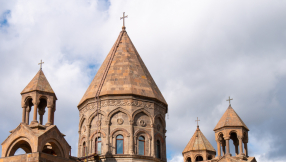
There are some Christians who refuse to celebrate holidays such as Halloween, Christmas and Easter since to them these events have become "saturated in paganism, superstitions, and the occult."
But Pastor Shane Idleman from Westside Christian Fellowship said there are ways Christians can observe these holidays just as long as they keep in mind why, who, and how they observe them.
"For example, Halloween, a mixture of Celtic pagan superstition and early traditions, is associated with witchcraft and satanic activity. This is not something to be celebrated, nor can it be redeemed as it stands with themes such as horror, death, and fear," he writes in his ministry's website. "We have children and we can't always avoid the gory and grotesque decorations, so we change the theme in order to redeem. We use the opportunity to redefine Halloween to 'good overcame evil day.'"
Idleman explains that this does not mean Christians would be celebrating Halloween. It just means an occasion where they can remember Jesus' victory on the cross and how He overcame evil.
As for Christmas, which is steeped in pagan practices, Idleman acknowledges the fact that it is now heavily abused and commercialised. It can still be redeemed, he says, because Christmas ultimately celebrates eternal life through the birth of Christ.
"Rich in symbolism, the Christmas tree can point to the cross: once a dead and barren tree, supporting a lifeless Saviour, it now stands evergreen as the symbol of eternal life that darkness cannot overcome," he says. "Gift giving can also represent peace and goodwill among men."
Easter is another holiday with roots in neo-paganism and ancient Celtic and pagan rituals, but Idleman knows that many Christians who celebrate Easter are not swayed or influenced by pagan roots, Celtic rituals, or cult-like experiences. They are not worshipping the false goddess Eostre either.
"Like Christmas, the historical roots and the secularisation does not undermine the message in a sincere heart. Easter celebrates the reality of an empty tomb and the power of the cross to cleanse and redeem... to release us from sin and death," he says. "It offers hope and peace to a dying world. This is cause for great celebration. Holidays, in many cases, are redeemed when the focus is on Christ."
Ultimately, Idleman encourages Christians not to "celebrate like the world does," and instead reflect in their own hearts how they can fill the Spirit and celebrate in such a way that leads to love, joy, peace, contentment, gentleness, and kindness.


















